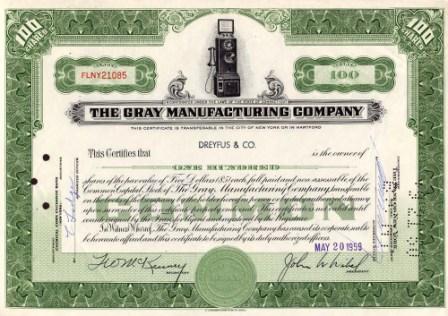Stock Market Conventions and Terms
If you have read my previous post you must have already known why companies trade in the stock market and why you should invest in the stock market.
In order to successfully trade in the stock market you must first understand the language that is being used in trading. There are several terms that might still sound foreign to you. Take note the definition of the terms that will be discussed here will not be very technical. This is not meant to be a comprehensive, “encyclopedic” dictionary or list of technical and detailed stock market terms and conventions. If you wish to have a deeper technical meaning to stock market concepts, then try searching for other sources. The concepts explained here is intended for the ordinary layman.
1.) UNDESTANDING SHARES OF STOCK – First of all we need to understand what a stock is. A stock is in a sense “a piece of ownership of a company.”
To fully understand this, I will have to give a “crash course” in business law. In law school we spend more than two semesters tackling various business law subjects. I am teaching business law now to Industrial engineering students and we have a semester to talk about the subject. However here you have this rare opportunity to breeze through the subject in less than 5 minutes.
To start with we have to know the three basic types of business organization in the Philippines. Sole Proprietorship, Partnership and Corporations.
If you put up a business and you are the only one who owns that business we call it as “sole proprietorship.”
If you have a partner or have several partners and your business is run according to partnership laws we call it a “partnership.”
Ownership in Sole Proprietorship and partnerships are not called as “Shares of stock.” They are simply called as business interest, partnership share or called as other terms.
Shares of stock refers to companies or business that are organized under what we know as “Corporations”
I will not get into the nitty gritty on what a Corporation is. I will just give you an overview of the difference between Partnership and corporation. In a sense they are similar because instead of only being the sole owner of a certain business there are many of you who own the business. However the similarities end there. Partnership and Corporation are very much different. They are governed by different types of laws. A partnership is simply a contract however a Corporation is a “separate juridical person” with a personality separate and distinct from the stock holders. People who own the business like you do in a partnership are called your “partners.” However people who own the business like you do in a corporation are called “stock holders.” In partnership, if the partnership itself cannot pay off its creditors, the partners themselves will have to pay with their own personal assets. (Subject to certain exceptions of course) However in corporations, if the corporation cannot pay its creditors the stock holders are not required to pay with their own personal assets. The list on the difference between a partnership and corporation could go on and on. However I will tackle this in another post.
So in order to become a “stock holder” in a certain corporation you would have to buy “shares of stocks.”

Your ownership in the company wherein you are buying “shares of stock” is evidenced by a “stock certificate.” This thing looks like a diploma. Pertinent information is printed on the certificate like the name of the company, the authorized capital stock, the serial number, your name, the date, number of shares you own and of course the authorized signatures. (However take note that in online trading, you are not issued a stock certificate since everything is done electronically and there is nothing to worry about since under the rules of electronic evidence, an email is considered evidence. In my experience BPI sends me an email plus an actual receipt of my stock purchases.)
I will not discuss the types of stocks since this will add more confusion to the readers. Besides majority of the securities traded in the Philippine stock market is what we know as “common stocks.” So it is useless to talk about stuff you do not even have to know (Or “want to know”). In future posts, perhaps we can discuss this, for now we will talk about the basics.
So when you want to own a “piece of PLDT” you will have to buy “shares of stocks” of PLDT the same thing is true with Jollibee, BPI, Ayala land etc.
But how do you do this? You go to the stock market. With the advent of the internet, buying and selling stocks is as easy as ever. Refer to my previous post for more details on online trading. (How to invest in the Philippine stock market – Part 3, Starting online trading)
Since you are now technically an owner of the company which stock you have purchased you are entitled to the profits of the company. We call this “dividends.” There are three types of dividends, cash dividend, stock dividend and property dividend.
The terms are self explanatory. Cash dividends of course refer to cash being given to stock holders. It is computed on the basis of number of shares. For example if the company says it will give a cash dividend of P 1.00 per share, and you have 1,000 shares, you get P 1,000.00 as cash dividend.
The computation in the giving of stock dividends is similar to cash dividends except that cash is given. For example, I believe last year China Banking Corporation gave a 25 % stock dividend. So if you had 100 shares you will be given an additional 25 shares as stock dividends.
Cash and stock dividends are the most common type of dividends that are given to stock holders. Property dividends are rarely given. In fact I’ve never personally heard of a company being traded in the stock exchange giving out property dividends.
Take note that the declaration of dividends is discretionary upon the board of directors. If no declaration of dividends is made, then no dividends will be given to the stock holders. However stock holders can be assured that eventually corporations will be forced to declared dividends since if they fail to do so they will be taxed for such actions. This is called as “improperly accumulated earnings tax.” (This is of course subject to certain exceptions)
As owner of shares of stock of a corporation you can also earn from such stocks by selling it once the price goes up in the stock market.
Whew !!! That so much learning in just 5 minutes !!! To prevent you from having an information overload we will continue this discussion in the next post, part 4b.
But before we dismiss the class I want to do an assignment. Go to the Philippine stock exchange website and take a peek there. We will be discussing the stuff there more extensively next meeting. Class dismissed !
Should you have any questions, don’t be shy to ask, click on “post your comment“and type in your question.
 Hi ! my name is Zigfred Diaz. Thanks for visiting my personal blog ! Never miss a post from this blog. Subscribe to my full feeds for free. Click here to subscribe to zdiaz.com by Email
Hi ! my name is Zigfred Diaz. Thanks for visiting my personal blog ! Never miss a post from this blog. Subscribe to my full feeds for free. Click here to subscribe to zdiaz.com by Email
You may also want to visit my other blogs. Click here to learn more about great travel ideas.

hi! just want to aSK.. I HAD A FRIEND WHOSE HUSBAND DIED 2007 AND LEFT SO MANY STOCKS CERTIFICATE LIKE AYALA LAND ,ABOITIZ, COSMOS BOTTLING CORP,PLDT AND … TO NAME A FEW. THE HUSBAND LEFT NO LAST WILL AND TESTAMENT. HE ALSO HAVE OTHER CHILDERN WITH TWO GIRLS OTHER THAN MY FRIEND.THIS FRIEND OF MINE IS THE ORIGINAL WIFE. HER PROBLEM IS SHE WANTS TO TURN THIS STOCK CERTIFICATE INTO CASH. ALL STOCK CERTIFICATES ARE NOT DECLARED IN THE EXTRA JUDICIAL SINCE SHE DOES NOT WANT. SHE ONLY HAVE ONE CHILD BY HER LATE HUSBAND. AND HER CHILD STANDS AS THE ADMINISTRATOR. HOW CAN YOU HELP MY FRIEND TO DISPOSE ALL THIS STOCK CERTIFICATES WITHOUT GOING TO EXTRA JUDICIAL SETTLEMENT?
gheslaine: Once a person dies settlement of estate is a necessary requirement whether judicial or extra judicial settlement. There is no way to get around it.
Extra judicial settlement is way much better as it does not involve the courts and is much faster.
To turn the stock certificate into cash, you need a buyer for said stock certificates. Try selling them.
thanks for the input. I just want to ask some questions.. the husband has died 3 years ago.and the stock certificates are under his name so how to go about transferring the stocks certificates under the name of my friend so she can dispose it because she is already 75 years old and she is looking for a buyer.
gheslaine: You will have to contact the companies and inform them that the husband has died. That way they can issue new stock certificates in the name of the wife. Also you could ask them to help sell the shares of stocks.
my friend and I went to the transfering agent which is BPI. we have submitted already the death certificate and the marriage contract. they gave us the certification of the list of the stocks certificate issued to her husband.and some other requirements to comply with……I need a form for extra judicial settlement with wavier of rights..somewhat a format..I appreciate if you can furnish me one.medyo nag titipid lang sa attorney. what my friend can afford now is pang notaria lang. thanks for your big help.